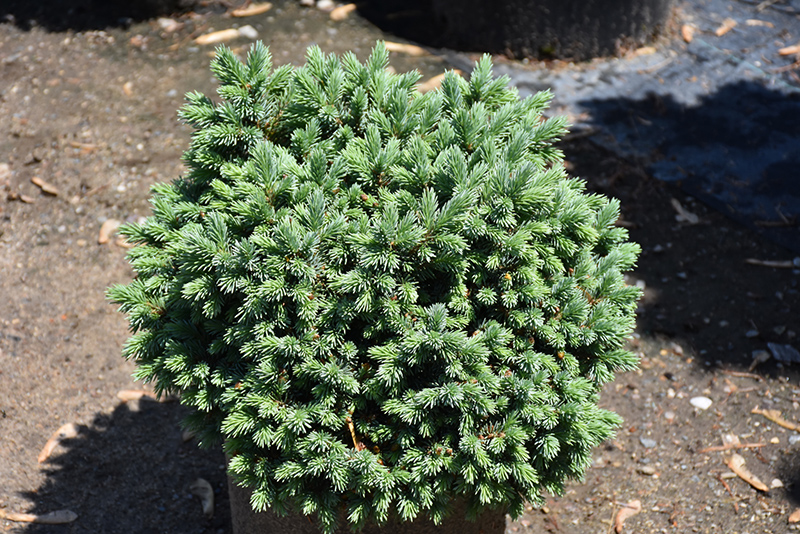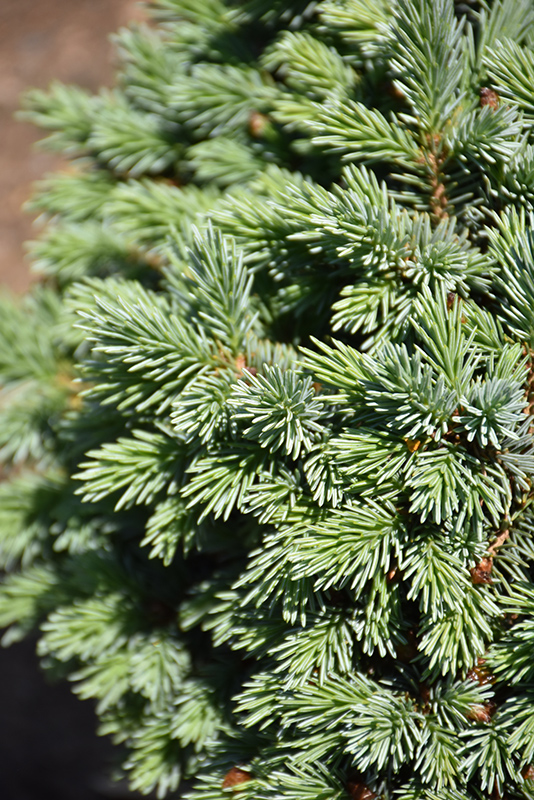Jasper Engelmann Spruce
Picea engelmannii 'Hexenbesen Jasper'
Height: 3 feet
Spread: 3 feet
Sunlight:
![]()
Hardiness Zone: 3a
Brand: Iseli Nursery
Description:
This compact, globose selection features muted, blue-green needles that are soft to the touch; thrives in cool conditions, a perfect addition to an alpine garden
Ornamental Features
Jasper Engelmann Spruce is a dwarf conifer which is primarily valued in the garden for its ornamental globe-shaped form. It has attractive bluish-green foliage with hints of powder blue which emerges light green in spring. The small needles are highly ornamental and remain bluish-green throughout the winter.
Landscape Attributes
Jasper Engelmann Spruce is a dense multi-stemmed evergreen shrub with a more or less rounded form. Its relatively fine texture sets it apart from other landscape plants with less refined foliage.
This is a relatively low maintenance shrub. When pruning is necessary, it is recommended to only trim back the new growth of the current season, other than to remove any dieback. It has no significant negative characteristics.
Jasper Engelmann Spruce is recommended for the following landscape applications;
- Accent
- Mass Planting
- Rock/Alpine Gardens
- General Garden Use
Planting & Growing
Jasper Engelmann Spruce will grow to be about 3 feet tall at maturity, with a spread of 3 feet. It has a low canopy. It grows at a slow rate, and under ideal conditions can be expected to live for 70 years or more.
This shrub should only be grown in full sunlight. It is very adaptable to both dry and moist growing conditions, but will not tolerate any standing water. It is not particular as to soil type or pH. It is somewhat tolerant of urban pollution, and will benefit from being planted in a relatively sheltered location. Consider applying a thick mulch around the root zone in winter to protect it in exposed locations or colder microclimates. This is a selected variety of a species not originally from North America.


